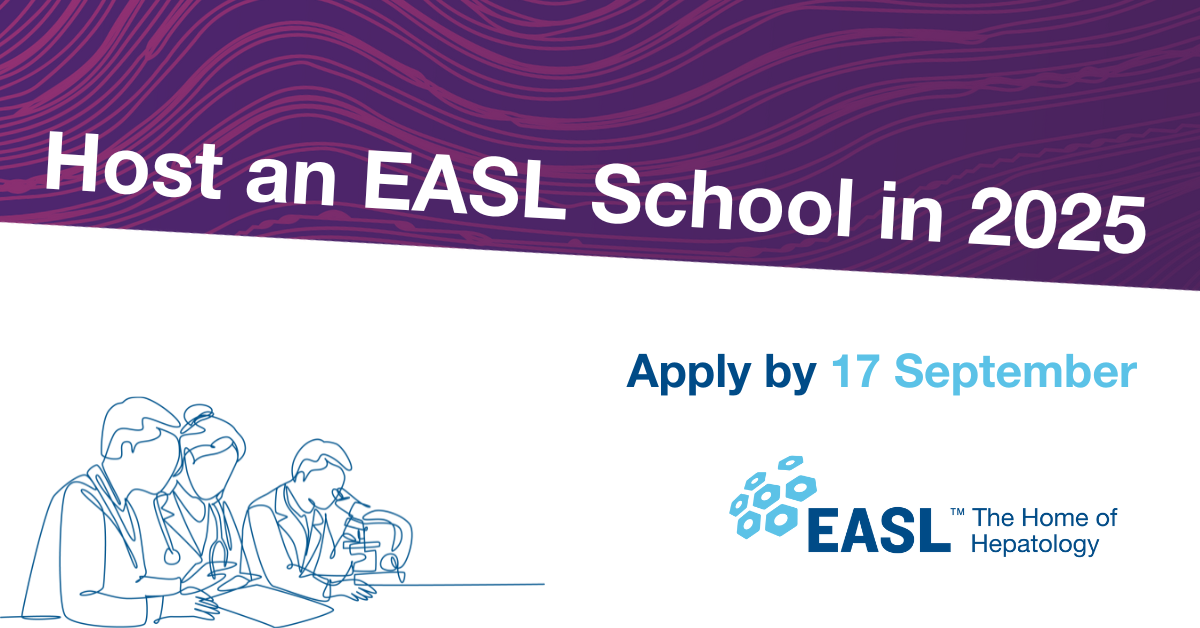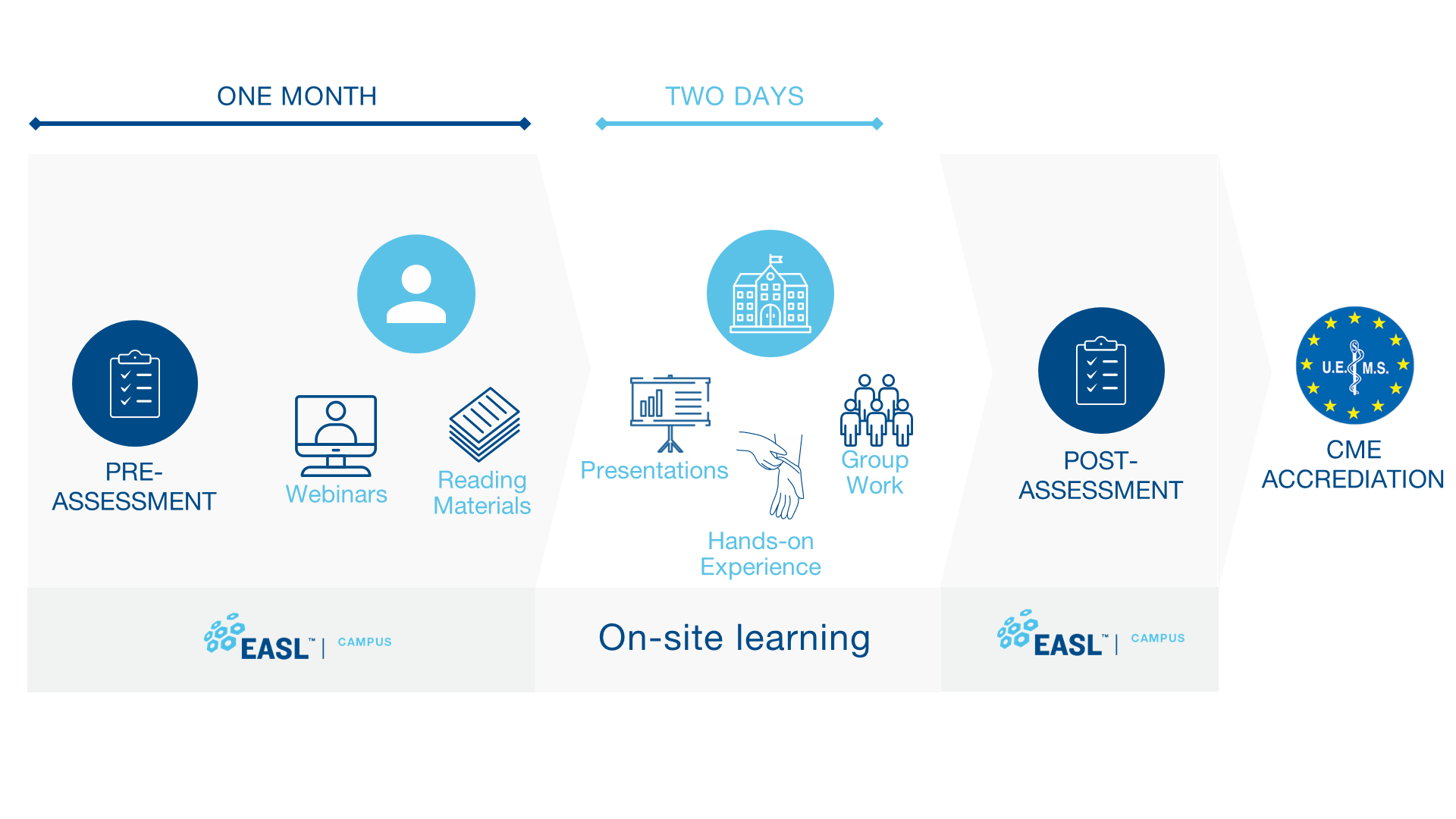Call to host an EASL School of Hepatology 2025

EASL is opening the call for hosting three clinical and one basic science EASL School to be held in 2025. If you are an EASL Member, submit your proposal before 17 September 2023.
Requirements for application
- Only EASL members may apply to host an EASL School. If you are not a member yet, you can become an EASL member now.
- EASL Schools must be hosted in dedicated European centres of excellence and be able to accommodate plenary sessions and breakout groups.
- EASL Schools must be led by experts of the hosting institution (maximum 2-3 external experts are allowed).
- EASL Schools programme must not exceed 2 days. Students must be able to travel in the afternoon of the second day.
- EASL Schools 2025 will be scheduled around June for the clinical schools; and September for the basic science school.
The proposals will be reviewed by the EASL Educational Committee. EASL will allocate a dedicated budget to the successful applications. EASL office will provide the successful applicants with the related information and guidelines.
EASL Schools format
The format, designed to host 25 students, is “flipped-classroom” based, learner-centric and problem-oriented. Preparation for the onsite learning consists of online course(s) and educational materials hosted on EASL Campus and provided by the school organisers. Students are expected to take the online course(s) and complete the pre-assessments one month before the start of the EASL School. Once onsite, students should work in small groups under the guidance of experienced tutors (emphasising on teamwork and cooperation). The post-assessments and surveys are conducted on EASL Campus.
Clinical EASL Schools
The programme must be based on the following structure:
Before the EASL School:
- Pre-assessments of the students through EASL Campus (online courses, live webinars, quizzes etc.).
- Group assignment.
Day One:
- Clinical cases study: Student groups are assigned complex clinical cases with tutors to guide them.
Day Two:
- Clinical cases presentations and selection of the winning group.
- State-of-the-art lecture by a renowned expert.
- Students’ evaluation of the school programme and format (mandatory).
After the EASL School: Post-assessment tests and accreditation of the students through EASL Campus.
To learn more about this EASL School format, discover this year’s schools:
- Alcohol-related liver disease: diagnosis, risk stratification and management, 7-8 July 2023, Odense (Denmark)
- Clinical dilemmas in cirrhosis: an approach from the evidence to the decision, 7-8 July 2023, Madrid (Spain)
- Diagnostic and treatment challenges in “difficult-to-manage” patients with autoimmune hepatitis and primary biliary cholangitis, 30 June – 1 July, Larissa (Greece)
Basic EASL Schools
The programme must be based on the following structure:
Before the EASL School:.
- Pre-assessments of the students through EASL Campus (online courses, live webinars, quizzes etc.).
- Group assignment.
Day One:
- Experimental hands-on sessions.
Day Two:
- Experimental hands-on sessions.
- State-of-the-art lecture by a renowned expert.
- Students’ evaluation of the school programme and format (mandatory).
To learn more about this EASL School format, discover this year’s school Microbiome in chronic liver disease, 27-29 September 2023, London (UK).


